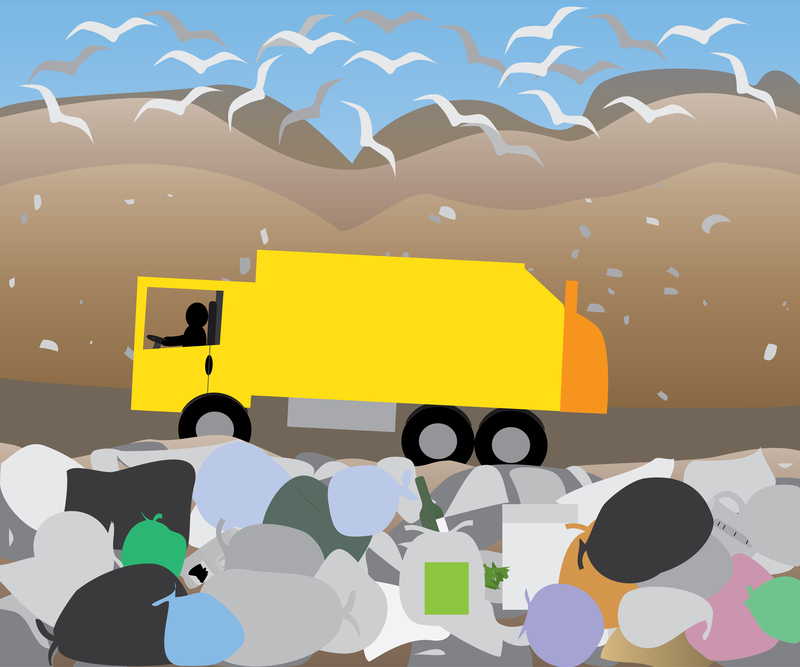Ultimate Skip Hire Guide: The Crucial Dos and Don'ts
Whether you're tackling a major home renovation, clearing a garden, or managing construction debris, skip hire is a smart and convenient waste disposal solution. However, hiring and using a skip comes with its own set of rules and best practices. In this Ultimate Skip Hire Guide, we'll walk you through the essential dos and don'ts for skip rentals, covering everything from choosing the right size to environmentally responsible disposal. Get ready to streamline your next project and avoid costly mistakes with our expert tips for skip hire.
Understanding Skip Hire: What You Need to Know
Skip hire is a cost-effective and practical way to remove large amounts of waste from residential, commercial, or industrial sites. Skips come in various sizes, making them suitable for jobs both big and small. They are typically delivered to your location, filled at your own pace, and collected for disposal or recycling. Properly managing skip usage is essential to stay within the law and minimize environmental impact.
How Skip Hire Works
- Contact a local skip hire service provider and book the appropriate skip size for your project.
- The company delivers the skip to your property or site at an agreed time.
- Fill the skip with your waste material, adhering to the provider's guidelines.
- Once full, call the company for skip collection and waste removal.

The Crucial Dos of Skip Hire
Proper skip hire boosts convenience, safety, and environmental responsibility. Here are the top dos you must consider:
1. Do Choose the Right Skip Size
Skips come in a variety of sizes, including mini, midi, builder's, and roll-on roll-off skips. Selecting the right skip size not only saves money but also reduces the risk of overfilling or hiring multiple skips.
- Mini skips (2-3 yards): Ideal for small DIY jobs or garden clean-ups.
- Midi skips (4-5 yards): Suitable for medium renovations or furniture disposal.
- Builder's skips (6-8 yards): Perfect for major home renovations or construction waste.
- Roll-on roll-off skips (20-40 yards): Designed for large-scale building projects or commercial clear-outs.
Seek advice from your local skip hire company if you are unsure about the best size for your waste management needs.
2. Do Separate and Sort Waste Properly
Segregate waste into recyclable and non-recyclable items before filling the skip. Some companies offer dedicated recycling skips or may request that certain materials (like plasterboard, metals, or glass) be kept separate. Proper sorting improves recycling rates and can reduce disposal costs.
3. Do Check for Permit Requirements
If you plan to place your skip on a public highway or pavement, you'll likely need a skip hire permit from your local council. Failing to obtain one can result in hefty fines or legal complications. Always check permit requirements and regulations before delivery.
4. Do Load the Skip Safely and Efficiently
- Place heavier, bulkier items at the bottom for stability.
- Break down large materials to maximize skip space.
- Avoid leaving gaps--instead, fill spaces with smaller debris or bagged waste.
- Never fill the skip beyond the fill line indicated on the side.
5. Do Consider Environmental Impact
Choose a skip rental company committed to recycling or eco-friendly disposal. Many reputable skip companies recycle up to 90% of the collected material, reducing landfill contribution and environmental harm. Ask for certificates or evidence of their recycling practices for peace of mind.
6. Do Follow Local Regulations
Each locality may have specific rules and regulations governing skip use, such as operating hours, placement restrictions, or traffic considerations. Familiarize yourself with these rules to avoid complaints or penalties.
7. Do Plan the Skip Location Carefully
Place the skip in a location that's accessible for both filling and collection but doesn't block driveways, fire exits, or disrupt public pathways. Always communicate with neighbours if your skip is placed near shared access points.
The Don'ts of Skip Hire: Common Pitfalls to Avoid
While skip rental seems straightforward, there are pitfalls that can cause inconvenience or incur extra costs. Avoid these common mistakes:
1. Don't Overfill Your Skip
Overfilled skips are a safety hazard and are often refused by collection crews. Materials protruding above the skip's sides present risks during transport. Most providers have strict "level load" policies--never exceed the marked fill lines. If your waste exceeds capacity, arrange for a second skip or opt for a larger container.
2. Don't Place Prohibited Items in the Skip
There are strict regulations regarding banned materials that cannot be disposed of in standard skips. Common prohibited items include:
- Asbestos and hazardous chemicals
- Tyres and batteries
- Electrical appliances and electronics (WEEE waste)
- Paints, solvents, and fuel
- Gas cylinders and pressurised containers
- Medical waste Check with your skip hire provider for a full list of banned items; disposal of these requires specialist handling.
3. Don't Forget About Weight Restrictions
Each skip has a set weight limit determined by its size and the lorry used for collection. Filling a skip with extremely dense materials like soil, bricks, or rubble may exceed weight restrictions even before the skip appears full. Always consult your provider about the best skip size for heavy waste to avoid additional charges or refusal of collection.
4. Don't Block Public Paths or Access
Never place your skip in a way that blocks pathways, driveways, or other essential access points. This isn't just inconvenient--it may be illegal and can lead to fines or complaints from your neighbours or local authorities.
5. Don't Ignore Security Concerns
Unattended skips can attract illegal dumping or fly-tipping. Consider covering your skip with a tarp overnight or when not in use. Some sites may benefit from lockable skips for added security and peace of mind.
6. Don't Burn Waste in the Skip
Burning rubbish inside a skip is both dangerous and illegal in many areas. It can damage the skip, cause fire hazards, and release toxic fumes. Always stick to permitted waste disposal methods.
7. Don't Assume Everything Goes
Even common household or garden materials might be unsuitable for standard skips. Always consult your skip hire company's guidelines before placing unfamiliar items inside.
How to Book a Skip: Step-by-Step Guide
Ready to book a skip for your upcoming project? Follow these steps to ensure a smooth and successful hire:
- Assess the scale of your project and estimate the type and volume of waste to be disposed of.
- Research local skip hire providers with strong reputations and eco-friendly disposal policies.
- Get multiple quotes for price comparison and ask about additional costs (e.g., permits, overweight charges, overrun hire time).
- Select your skip size and clarify the types of waste you plan to dispose of.
- Arrange for a permit if the skip will be placed on public property.
- Schedule delivery and collection at times that fit your project timeline.
- Prepare the location to ensure it is accessible and suitable for the skip's dimensions.
Frequently Asked Questions About Skip Hire
- How much does skip hire cost?
Costs vary based on size, location, rental duration, and permit requirements. Always request a detailed quote upfront. - How long can I keep a skip?
Most companies offer a standard hire period (typically 1-2 weeks), but extensions are possible for an added fee. - What happens to the waste?
Reputable providers transport the waste to licensed transfer stations for sorting, recycling, and appropriate disposal. - Can I move the skip once delivered?
Never attempt to move a skip once it has been positioned. Skips are extremely heavy and require specialist equipment to relocate.
Benefits of Responsible Skip Hire
By following the crucial dos and don'ts of skip hire, you unlock a range of benefits:
- Saves time and effort with centralised waste disposal for your project.
- Reduces environmental impact through responsible sorting and recycling.
- Legal protection by complying with local and national waste management laws.
- Safer worksite conditions thanks to secure, appropriate waste management.

Tips for Maximising Your Skip Hire Experience
- Book early, especially during peak seasons or for large skips.
- Use approved skip covers to prevent unwanted waste and deter wildlife.
- Group similar waste together to help with recycling and efficient loading.
- Keep children and pets away from skips at all times for safety.
- Communicate with your provider regarding permit needs, restricted items, or special requirements.
Conclusion: Hire a Skip the Smart Way
Efficient waste management is critical for both small and large projects--and skip hire offers the ultimate solution for hassle-free disposal. With this Ultimate Skip Hire Guide, you're now equipped with the essential dos and don'ts to maximize value, minimize risk, and stay compliant with regulations. Take the time to choose the right skip, respect the loading guidelines, and work with a reputable rental provider. Remember, responsible skip hire is not just about convenience--it's about safety, legality, and sustainability.
For more insights into waste management and eco-friendly disposal solutions, keep exploring our guides and expert advice. Make your next project a cleaner, safer, and more sustainable success!